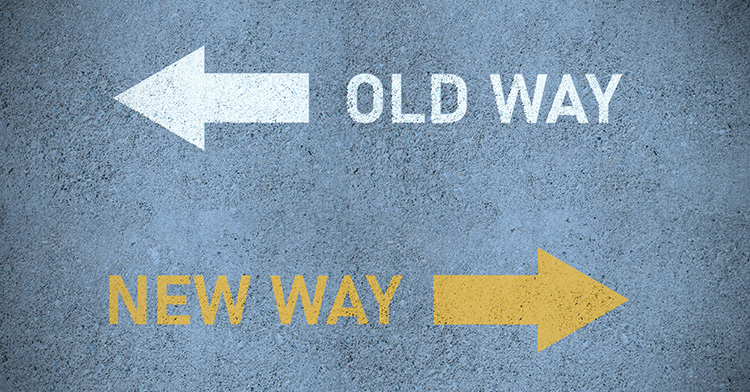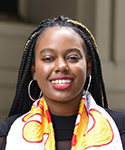December 12, 2023
The church needs innovation instigators

As we’ve learned through COVID-19, faith communities can adapt. Church leaders must be willing to continue sparking change by asking new questions and challenging old answers.
“We’ve always done it this way!”
For decades, church leaders and committee members have sat in fellowship halls and church classrooms and around conference tables discussing future plans for their congregations.
Inevitably, someone utters those familiar six words: “We’ve always done it this way.”
At first, it can feel like an uninspired attachment to the past. But with deeper listening, you will recognize that it can be more about pride in the track record of the congregation. It’s more “If it ain’t broke, don’t fix it” and less “Over my dead body!”
“We’ve always done it this way” can be an important tether to church culture and long-standing tradition — but it can also be the chief barrier to innovation.
What if the pastors in the room saw themselves as innovation instigators?
When I was growing up, one of our favorite sayings was, “Why are you instigating?” It was a question that would come up whenever two or more folks were in the early stages of an argument or disagreement.
Inevitably, someone would come around to some version of, “I heard you said this …; I heard you said that …,” which would lead someone else in the conversation to ask, “Why are you instigating?” The rhetorical question in childhood settings was meant to draw out the reality that the instigator was bringing information to the forefront to fuel the fire and keep the intensity high.
I am by no means advocating for pastors to spark disagreements in committee meetings, but what would it look like to see ourselves as innovation instigators within our congregations? When a committee member gazes through rose-colored glasses at a church event from the past, how might pastors bring to the forefront the full picture rather than limiting the view to the committee’s highlight reel?
What would it look like to raise the internal challenges that accompanied an external win? Yes, the event was sold out, but was the church equipped to handle the crowd? Yes, the choir did a phenomenal job, but did they sing too long? Yes, elected officials showed up, but when their team misrepresented our event on their social media accounts, did we correct them?
Seeing ourselves as innovation instigators means being willing to hold the mirror up to ourselves and our team so that we can honestly examine the moments where things are working effectively and where they are not. The purpose of this work is not to deflate the pride that congregations have about who they are and what they’ve done but to work out the kinks so that every experience offered becomes better than the last. A culture of questions and critique helps churches both celebrate their wins and respond to their losses.
Innovation instigators don’t allow the team to let themselves off the hook when it comes to event evaluations. They stand in the tension to hold space for new normals to emerge when the old ways of doing things are no longer cutting it.
Rarely is the work of innovation done completely from scratch. We must look for innovative moments within ongoing practices. In other words, we may not be able to change the whole thing at once, but we can make significant changes along the way.
My dissertation adviser, L. Gregory Jones, now the president of Belmont University, calls this practice traditioned innovation. As he wrote with Andrew P. Hogue in “Navigating the Future: Traditioned Innovation for Wilder Seas,” traditioned innovation is “a way of thinking and living that holds the past and future together in creative tension.” Jones and Hogue went on to write: “We believe that the innovation that matters is innovation that draws on the best of the past, carrying forward its wisdom through ‘traditioned innovation.’” This framework has animated much of Jones’ work and even launched the Traditioned Innovation Project at Duke Divinity School.
With this context in mind, I’m calling for more of us to see ourselves as innovation instigators. We have the capacity to hold the past in one hand and the potential future in the other. I am more persuaded than ever in this post-2020 world that congregations have the capacity to innovate. We’ve proved it. The COVID-19 crisis forced churches across the nation to find ways to do church differently. Our “why” remained the same, but our “how” had to change. On that journey, we learned that we, the church universal, are capable of discovering new ways of solving problems.
While you cannot force innovation, you can create a culture that fosters innovative solutions to ongoing issues. Innovation instigators are those brave enough to ask the questions that unmask the real underlying challenges congregations face. Innovation instigators are those willing to disrupt the comfort of a church meeting to open the space up for honest reflection. While pastors cannot force members to think differently, pastors can raise the kinds of questions that draw out new answers. In this season, I implore you to instigate some change. Instigate some new ideas. Instigate toward innovation.
The years 2020-2022 taught us just how resilient we can be. Countless congregations learned new technologies under pressure. Innovation was at an all-time high. I believe that we still have within us that capacity to innovate. We did it under duress; now let’s attempt it in more neutral conditions. Let’s be innovation instigators.
What would it look like to raise the internal challenges that accompanied an external win?



Share